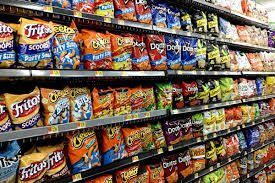What should I eat before and after a workout to build muscle? Your body needs carbs to fuel your working muscles. Protein is there to help build and repair. Get a combination of the protein and carbs in your body 1 to 4 hours pre-workout and within approximately 60 minutes post-workout.
What should I eat before workout to gain muscle? However, if you’re working out hard to support muscle-building, research suggests eating somewhere around 50 grams of carbohydrates and up to 10 grams of protein before training. A few of Axe’s go-to’s: protein smoothie made with protein powder, almond milk, fruit, and spinach. eggs with whole-grain toast.
What should I eat after I workout to gain muscle?
Sample post-workout meals and snacks
- grilled chicken with roasted vegetables and rice.
- egg omelet with avocado spread on whole grain toast.
- salmon with sweet potato.
- tuna salad sandwich on whole grain bread.
- tuna and crackers.
- oatmeal, whey protein, banana and almonds.
- cottage cheese and fruits.
- pita and hummus.
When gaining muscle should I eat before or after? While the importance of eating before a workout may vary based on the situation, most scientists agree that it’s beneficial to eat after exercise. Research shows that some nutrients, particularly protein and carbs, can help your body recover and adapt after exercise.
What should I eat before and after a workout to build muscle? – Additional Questions
What should not eat after workout?
20 Foods You Should Never Eat After a Workout
- Smoothies From Pre-Made Mixes.
- Spicy Foods.
- Soda.
- Heavy Proteins Like Steak.
- Fatty Foods.
- Chocolate.
- Fast Food.
- Simple Carbs.
What should you not eat before a workout?
Worst Things to Eat or Drink Before a Workout
- Granola or Protein Bars. 1/12. These might seem like a good idea before you hit the gym, but there’s no clear definition of what they really are.
- High-Fiber Vegetables. 2/12.
- High-Fat Food. 3/12.
- Yogurt. 4/12.
- Smoothies. 5/12.
- Flaxseed. 6/12.
- Fast Food. 7/12.
- Energy Drinks. 8/12.
Is it better to eat protein before or after a workout to build muscle?
Post-workout nutrition is more cut-and-dried than pre-workout. The consensus among most respected, evidence-based fitness professionals is that yes, you should eat protein after you work out. It’s not hugely important, but research does show that it can help you gain more muscle over time.
Does eating before a workout help build muscle?
Many studies have documented the potential of pre-workout protein consumption to improve athletic performance. Eating protein (alone or with carbs) prior to exercise has been shown to increase muscle protein synthesis ( 9 , 10 , 11 ).
Can you build muscle before eating?
According to The Academy of Nutrition and Dietetics, you should have both carbs and protein pre-workout to build muscle, and you should ideally eat one to three hours before exercising. Carbs fuel your body while protein builds and repairs it.
What do bodybuilders eat before bed?
What to Eat Before Bed to Build Muscle Overnight
- Eggs and Avocado. Arguably the standard in the world of protein, eggs are an excellent choice for late night feeding.
- Casein and Flax Seed Oil.
- Greek Yogurt and Chia Seeds.
- Cottage Cheese and Almonds.
- Whey Protein and Peanut Butter.
Will I gain muscle if I don’t eat alot?
Lifting and doing strength training without adequate nutrition, especially without enough protein, can actually lead to loss of muscle tissue. Furthermore, if you aren’t eating right you won’t have the energy to do the workouts that lead to muscle gain.
Which protein is best for muscle gain?
For Muscle Gain
Research has consistently confirmed whey protein’s ability to promote muscle mass and recovery. While whey concentrate is cheaper than whey isolate, it contains less protein by weight. 24 grams of protein and 5.5 grams of BCAAs per serving. BCAAs per serving.
What drinks help build muscle?
Researchers compared the effects of drinking nonfat milk, a soy protein drink, or a carbohydrate drink on building muscle and burning fat after completing weight lifting workouts. All three groups gained muscle, but the milk drinkers got the best results, says researcher Stuart M.
At what age does muscle growth stop?
“Muscle mass peaks around age 40. [Then it] begins to decline due to sarcopenia,” explains Pete Rufo, a performance coach at Beast Training Academy in Chicago. “A major contributor to muscle mass decline is lack of exercise and sedentary lifestyles.
What helps gain muscle?
Eight tips to help you build muscle mass
- Eat Breakfast to help build Muscle Mass.
- Eat every three hours.
- Eat Protein with Each Meal to Boost Your Muscle Mass.
- Eat fruit and vegetables with each meal.
- Eat carbs only after your workout.
- Eat healthy fats.
- Drink water to help you build Muscle Mass.
- Eat Whole Foods 90% of The Time.
What muscle grows fastest?
Is there no one group of muscles that always grows the fastest? Speaking very generally, the largest muscle groups in the body tend to respond the quickest to training in terms of their development. This makes sense because they’re the easiest muscles to overload with heavy weights.
How long it takes to build muscle?
Gaining muscle is a slow process. It can take about three to four weeks to see a visible change. You’ll see some real results after 12 weeks, but it “all depends on your goals, and what type of strength training you are doing,” says Haroldsdottir.
Is a 30 minute workout enough to build muscle?
When it comes to strength training, 30 minutes is the perfect amount of time to effectively work all the big muscle groups; the legs, the chest and the back.
How long should a gym session be?
The ideal workout duration can vary significantly depending on the person, their goals, their preferences, and the exercise type. For weightlifting and bodyweight strength training, 45–60 minutes per session may suffice. Meanwhile, cardiovascular and calisthenic training may be better if performed for 30–60 minutes.
How long should I workout a day?
As a general goal, aim for at least 30 minutes of moderate physical activity every day. If you want to lose weight, maintain weight loss or meet specific fitness goals, you may need to exercise more. Reducing sitting time is important, too. The more hours you sit each day, the higher your risk of metabolic problems.
How long should I lift weights?
No matter what your gender or age, lifting weights is a great way to increase your resting heart rate, lower body fat, improve balance and motor coordination, and enhance joint stability. For a total body workout, it’s recommended lifting weights for 20 minutes to 30 minutes three days a week.



